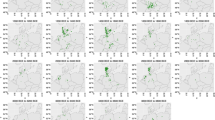Abstract
THERE has just been presented to the Royal Scottish Museum by Dr. E. MacKenzie, of Espiritu Santo, New Hebrides, a large Cœnterate colony found on the shores of the island after a storm. Dr. MacKenzie supplies the information that such colonies are held in great esteem by the natives, who use them as charms, wearing constantly a few twigs contained in a small bag or basket slung to the wrist, in the assurance that so good fortune will follow. But few other than chiefs are fortunate enough to possess this valuable jetsam. The twigs are also used as a medium of barter, a fragment of a colony, say, a branch seven or eight inches long, with its associated branchlets, having the exchange value of half a dozen pigs—the staple wealth of the island—or a wife.
This is a preview of subscription content, access via your institution
Access options
Subscribe to this journal
Receive 51 print issues and online access
$199.00 per year
only $3.90 per issue
Buy this article
- Purchase on Springer Link
- Instant access to full article PDF
Prices may be subject to local taxes which are calculated during checkout
Similar content being viewed by others
Author information
Authors and Affiliations
Rights and permissions
About this article
Cite this article
RITCHIE, J. The Use of Alcyonarians as Money. Nature 91, 213–214 (1913). https://doi.org/10.1038/091213c0
Issue Date:
DOI: https://doi.org/10.1038/091213c0
Comments
By submitting a comment you agree to abide by our Terms and Community Guidelines. If you find something abusive or that does not comply with our terms or guidelines please flag it as inappropriate.



